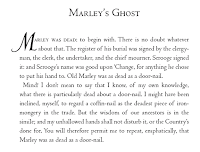Cue blank stare from me. I've heard the word "escutcheon" before, and had a vague idea that it pertained to architecture or interior design in some way, but other than that, not a clue. Fortunately, being in the office, a Google search was (literally) close at hand and quickly informed me that an escutcheon is "a flat piece of metal for protection and often ornamentation, around a keyhole, door handle, or light switch." In this particular case, the escutcheon is for protection around the base of the railing of the steps into the pool.
It reminded me of how many common items we see every day that we don't really know or use the proper name for - but almost all the time, a name exists. Another good example is that clear plastic piece that seals the end of your shoelace so it doesn't unravel: an aglet.
The aglet is such a common example of this kind of word that by now most people have at least heard the term, even if they don't use or remember it. But the world around us is full of random things that have names we don't know about - but should.
Most schoolkids these days have some kind of experience learning to play the recorder. But did you know that the mouthpiece of a recorder or similar instrument is called a fipple?
Dust. Pollen, Animal dander. Bright sun. Ground pepper. These are all examples of a sternutator, or something that makes you sneeze.
If you are unfortunate enough to have a unibrow, you are sadly lacking a glabella, a term referring to the space between the eyebrows. If you are fortunate enough to be Peter Gallagher, you have both magnificent eyebrows and a magnificent glabella.
Quite distinct in some people and all but invisible in others, that pale, crescent moon shape at the base of your fingernails is called a lunule.
Since we're talking body parts, that spot between your shoulder blades that you can't quite manage to reach to scratch with either hand? That's the acnestis.
That little round plastic table that sits in the middle of your take-out pizza to prevent all its cheesy goodness from ending up stuck to the top of the box is called a box tent.
If your tastes run to champagne rather than pizza, you should know that the wire cage holding the cork in a bottle of champagne is called an agraffe (sometimes spelled agrafe). It may also be referred to as a muselet.
The crimped metal collar that holds the eraser onto the end of the pencil is called a ferrule.
You know that the loops that hold your belt in place at the top of your pants are called belt loops, but did you know that the loop attached to the belt itself that holds the loose end of the belt from flapping around is called a keeper?
I always thought those little cardboard sleeves you slide onto your coffee cup to keep your fingers from being burnt were just called "coffee sleeves." Nope. They're actually zarfs.
You know that the symbol & is called an ampersand and * is an asterisk, but did you know that the real name of the infinity symbol is the lemniscate? Extra bonus word: the division symbol is called the obelus. Super extra bonus word: the pound sign on a telephone (#) is called an octothorpe (NOT A HASHTAG!).
If your handwriting is so messy that it's illegible (every doctor ever, I'm looking at you), it's called griffonage.
These terms don't have to refer to a physical object. Did you ever buy a new car, and all of a sudden everywhere you go you see that same make, model, and color of car? That phenomenon has a name: the Baader-Meinhof phenomenon, sometimes also called frequency illusion.
An even more common phenomenon with a cool but almost never-used name is borborygmus, the technical term for rumbling of the intestines. Extra bonus word: If it's your stomach rumbling instead of your intestines, it's called a wamble.
Did you know there's a word that means "fondness for buying things"? If you maxed out your credit cards on Prime Day last week, you probably have a case of emacity.
Have you ever read a book where the first page in every chapter began with an elegantly calligraphied or colored capital letter? That book has been rubricated.
This is a wonderful time of year to experience petrichor: that deliciously fresh smell that hangs in the air right after it rains.
You like gentle wind better than rain? When a breeze or wind makes a quiet, sighing sound, it is said to sough. Extra bonus word: A similar quiet rustling sound made by the movement of silk (for example, in a ballgown) is called scrooping.
Coochie-coochie-coo! That sensation you get when someone tickles you? That's gargalesthesia. You may love it, and you may hate it, but at least now you know what to call it.
That satisfying feeling you get after you let rip with some vulgar or indecent language that you'd never think of using in front of your grandmother? That's called lalochezia. Extra bonus: A string of random symbols used to represent swearing is called a grawlix.
"By the way, honey, my mom called to say she'd be over in half an hour." "Oh? When did she call?" "About 20 minutes ago." Cue the scurryfunge, or time you spend frantically cleaning right before company comes over.
Oh, and one more term that might be useful as soon as you finish reading this blog and want to tell someone else everything you learned: an argument about words is called a logomachy.



























No comments:
Post a Comment